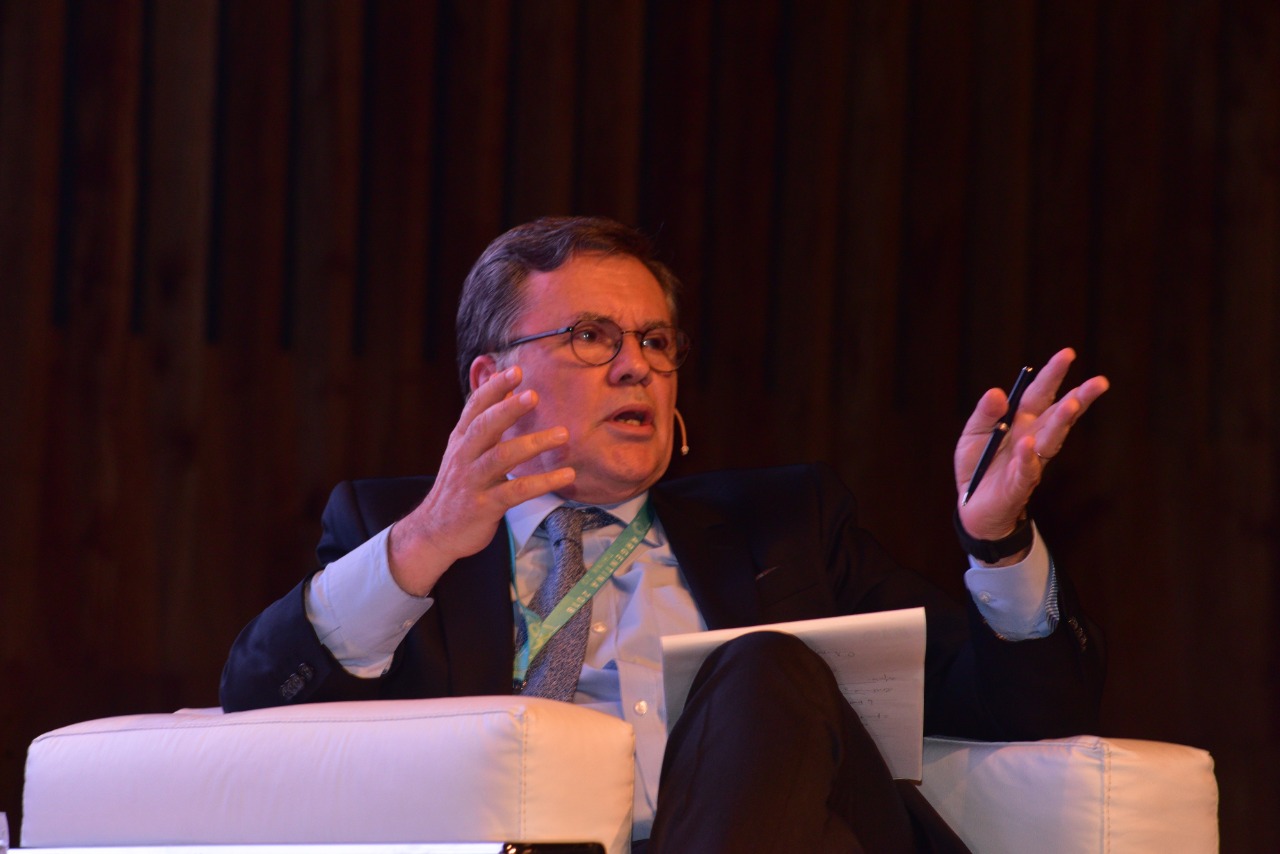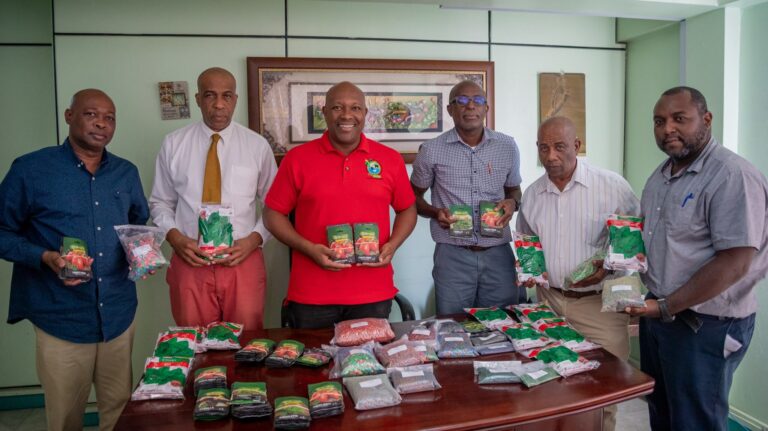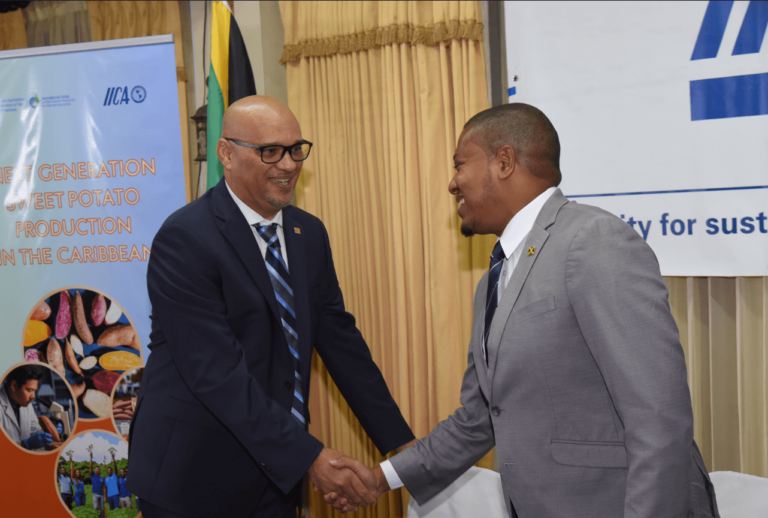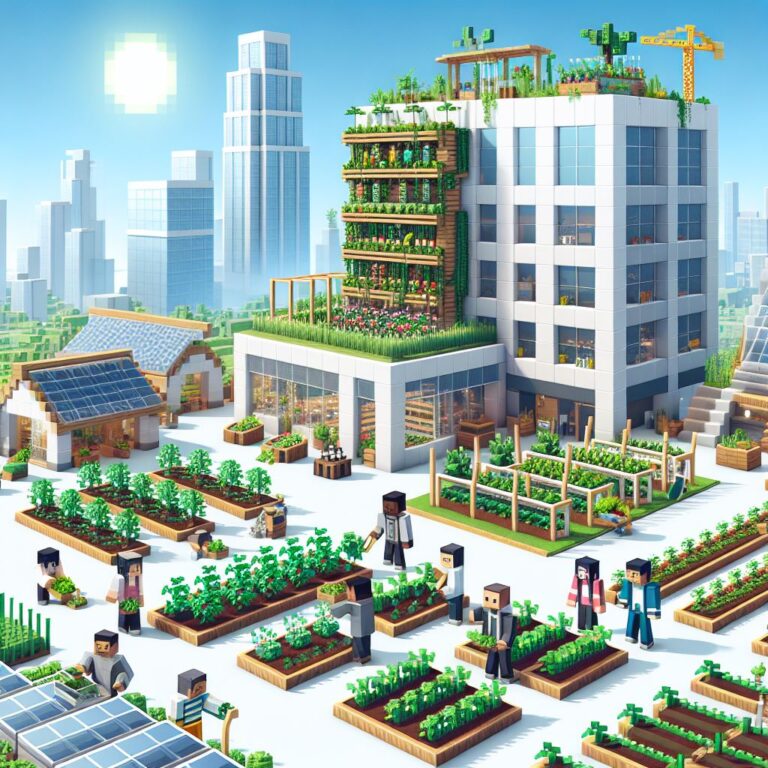The Director General of IICA participated in the summit of the G20’s think tank engagement group, which will submit policy recommendations to the leaders of this global forum.

Buenos Aires, 18 September 2018 (IICA). Latin America and the Caribbean will only reduce production, agricultural and rural disparities with respect to other regions, if it boosts investment in infrastructure, research and development and accelerates trade integration processes. This was the position put forward by Manuel Otero, the Director General of the Inter-American Institute for Cooperation on Agriculture (IICA), in an address in Buenos Aires, Argentina, at a Summit of the T20 – the G20’s think tank engagement group.
Otero was addressing the T20’s plenary session on Food Security and Sustainable Agriculture, where he urged that priority be given to investments in infrastructure, research and development, and that this be combined with sound public policies, to “enable the region to assume what is undoubtedly its rightful role as a key player in ensuring food and nutritional security”.
IICA’s head also stressed that, “countries must unite efforts to harness the tremendous potential of the tropical agriculture sub-region, on the basis of research and development and trade and integration”.
Otero went on to explain that, “Logistical costs in rural Central America account for almost 40 percent of total costs, whereas in Chile they amount to 18 percent and in the OECD countries, to 8 percent, on average”. He argued that projects funded by way of the public-private partnership (PPP) model, are “an extremely good option for investment in rural infrastructure”.
“This region has everything that it takes to become a key player in global food security and the sustainability of the planet”, he maintained, “and therefore we must accelerate processes to awaken the sleeping giant of the Americas”.
Otero did highlight “positive signs” in this regard, as a result of closer ties between Mercosur and the Pacific Alliance, given that he considers trade integration to be one of the most significant factors in furthering agricultural competitiveness.
IICA’s Director General also pinpointed specific examples in countries such as El Salvador, Honduras, Haiti and the Eastern Caribbean States, due to their extreme vulnerability to climate change and their failure to implement sound long-term agricultural policies.
“Sound and long-term sectoral policies, social policies targeting the most vulnerable groups, strong inter-institutional coordination, investment in infrastructure, development and research and, of course, more open and integrated economies, will enhance our ability to assume this key role”, said Otero.
IICA’s head concluded by remarking that, “We have a pending issue, which is to increase productivity. To achieve this, the entire continent will have to reinforce the vision that long-term agricultural policies should be implemented, based on two pillars: more investment in research and development, and more trade and integration”.
The G20 is the global forum for economic, financial and political cooperation, made up of 19 countries and the European Union. This year, under the forum’s current Argentine presidency, the T20 is coordinated by the Argentine Council for International Relations (CARI) and the Center for the Implementation of Public Policies for Equity and Growth (CIPPEC). The meeting brought together representatives of the world’s main think tanks, government officials, high level authorities from international organizations and business leaders.
Other speakers at the plenary session on “Food Security and Sustainable Agriculture” were Belay Begashaw of the Sustainable Development Goals Center for Africa; Máximo Torero of the World Bank and Valeria Piñeiro of the International Food Policy Research Institute. Martín Piñeiro, Director of the Agricultural Affairs Committee of CARI and Director General Emeritus of IICA chaired the session.
More information:
Sonia Novello, Communication Specialist, IICA Delegation in Argentina










